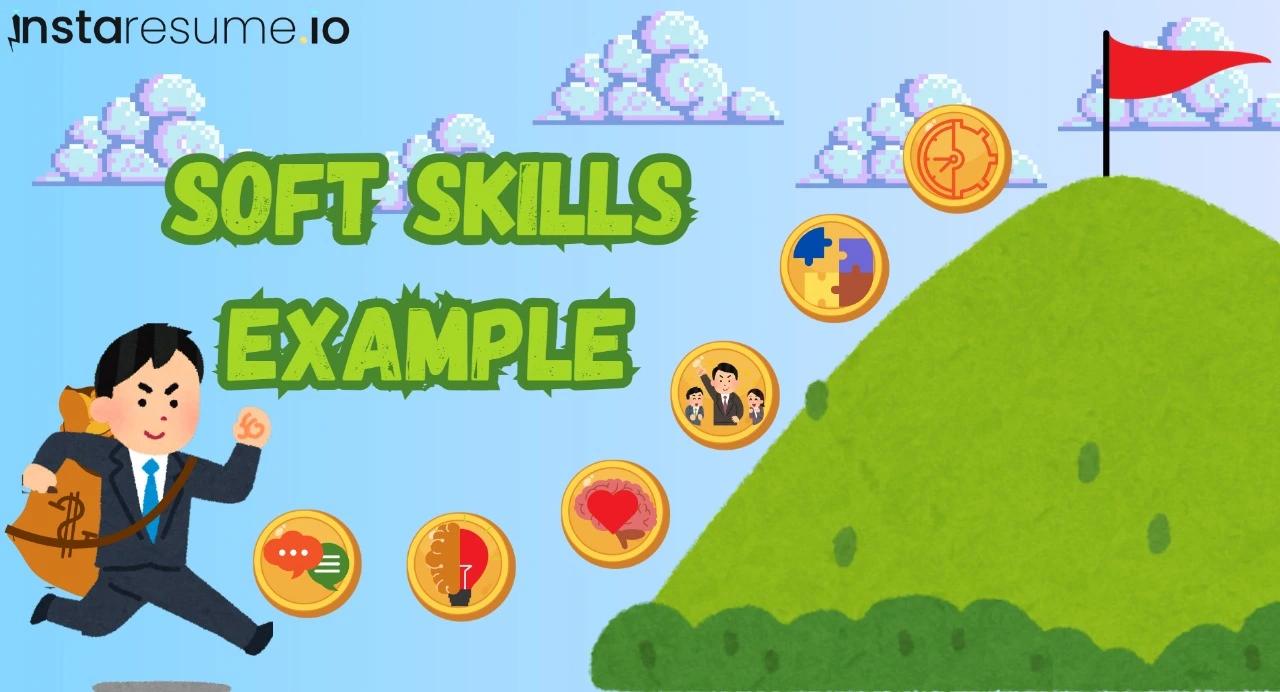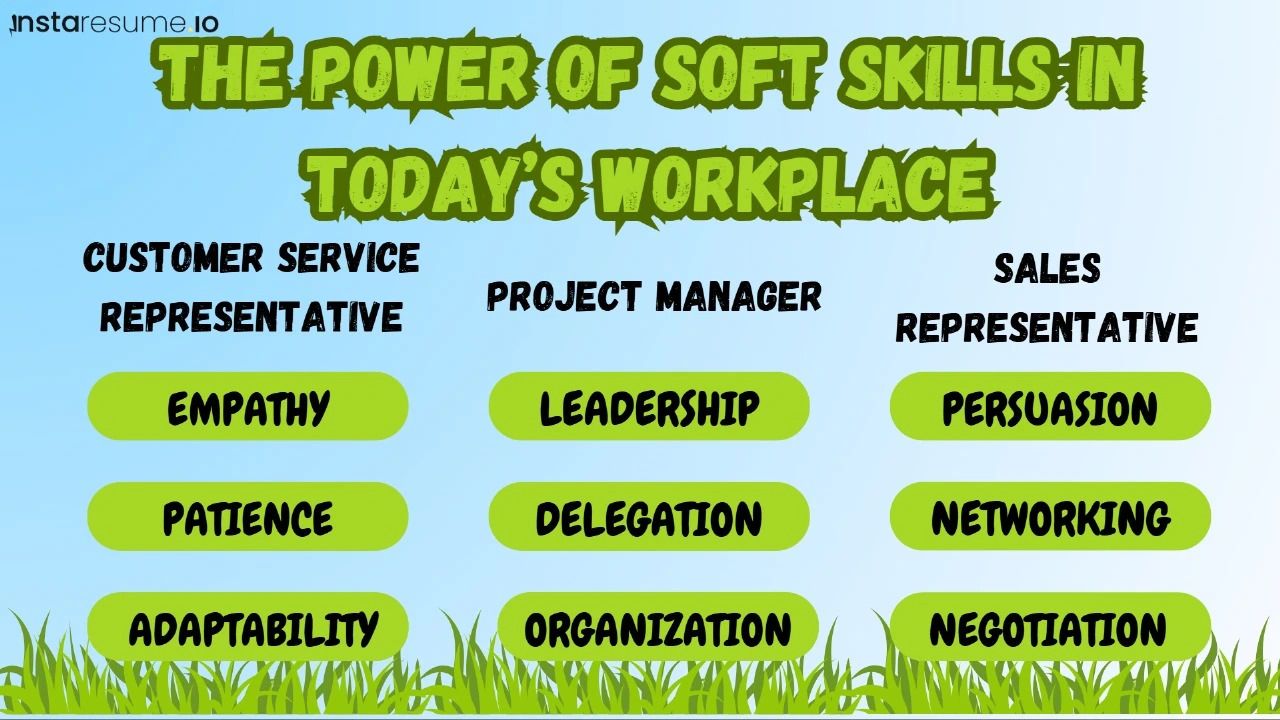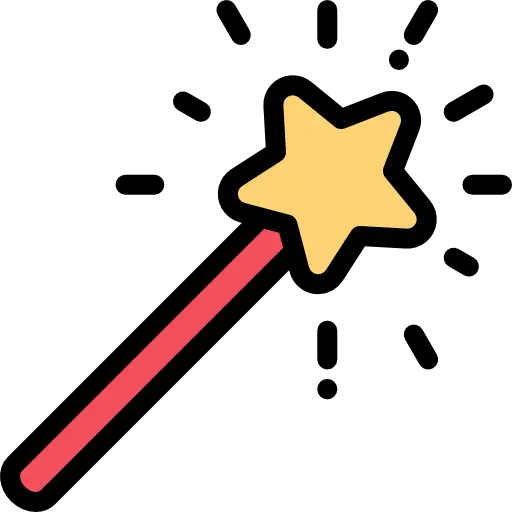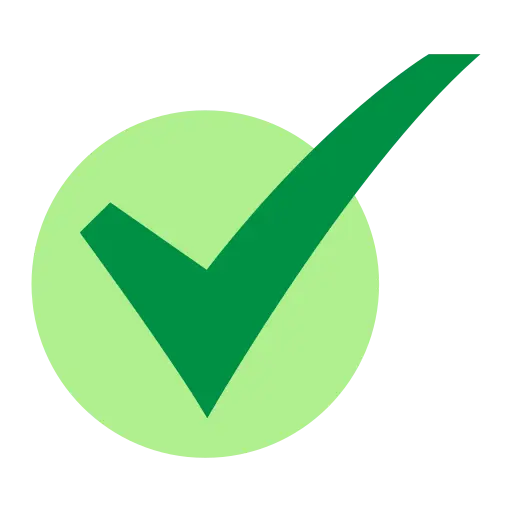Soft Skills: Real-World Examples for Career Growth
Trust Score: 4.7
358 reviews

Table of Contents
Unlocking Success: The Power of Soft Skills in Today's Workplace
Ever wondered why some people effortlessly connect with others or handle challenges with grace? The secret lies in their soft skills—the crucial, often underappreciated abilities that drive effective communication, problem-solving, and teamwork.
McKinsey's research on organizational performance stresses the importance of soft skills in driving productivity and collaboration within teams. Their studies indicate that effective teamwork, communication, and leadership skills contribute significantly to high-performing organizations.
In this comprehensive guide, we delve into the importance of soft skills across various professions and industries. Whether you're a seasoned professional looking to enhance your leadership abilities or a recent graduate aiming to stand out in a competitive job market, mastering these essential skills can propel your career forward.
Ready to unlock your full potential? Let's dive into the world of soft skills and discover how they can transform your career trajectory.
Why are soft skills important?
It is generally mentioned in job advertisements that communication skills, cognitive skills and analytical abilities are required in the candidate more than any hard skills because soft skills help you in certain ways which are as follows:
Identify employees who are not just able to do the job, but they’re also able to do it well.
Choose between qualified candidates who meet the typical requirements for the job.
Hire for potential, not just knowledge.
Make well-rounded hiring decisions.
Evaluate candidates’ culture fit.
Neil Carberry, former Director of Skills and Employment at the Confederation of British Industry (CBI), has emphasized the following key points about soft skills:
Crucial for Workforce Success: Carberry highlights those soft skills, such as communication, teamwork, and adaptability, are essential for success in the workplace.
Highly Valued by Employers: Employers prioritize candidates who possess strong soft skills, often considering them as important as technical qualifications.
Career Advancement: He points out that soft skills are vital for career progression, especially for leadership and managerial roles.
Educational Integration: Carberry advocates for incorporating soft skills training into educational curricula to better prepare students for the job market.
Carberry's insights underline the importance of soft skills in achieving individual career growth and meeting employer expectations.
Hard skills vs. soft skills: Bridging the gap in professional development
Hard Skills: Tangible, teachable abilities that are specific to a particular job or task, such as technical expertise in programming, data analysis, or accounting.
Soft Skills: Intangible, interpersonal attributes that enable effective communication, collaboration, and adaptability, essential for navigating diverse work environments and relationships.
Explore the guide to conceptual skills too for a better understanding.
Top 10 essential soft skills employers value most:
1. Time Management
2. Communication
3. Adaptability
4. Problem-Solving
5. Teamwork
6. Creativity
7. Leadership
8. Interpersonal Skills
9. Work Ethic
10. Attention to Detail
Explore our guide on How Many Skills to List on a Resume by visiting this link.
100+ soft skills examples for top 10 professions
1. Customer Service Representative
- Communication
- Active Listening
- Empathy
- Patience
- Problem-solving
- Conflict Resolution
- Adaptability
- Persuasiveness
- Positive Attitude
- Time Management
2. Project Manager
- Leadership
- Organization
- Negotiation
- Strategic Planning
- Risk Management
- Decision-making
- Delegation
- Time Management
- Adaptability
- Conflict Resolution
3. Sales Representative
- Communication
- Persuasion
- Networking
- Negotiation
- Problem-solving
- Adaptability
- Time Management
- Active Listening
- Goal-oriented
- Confidence
4. Teacher
- Communication
- Patience
- Adaptability
- Creativity
- Organization
- Conflict Resolution
- Time Management
- Empathy
- Leadership
- Active Listening
5. Healthcare Professional (Nurse/Doctor)
- Empathy
- Communication
- Problem-solving
- Attention to Detail
- Teamwork
- Adaptability
- Stress Management
- Time Management
- Patience
- Critical Thinking
6. Software Developer
- Problem-solving
- Attention to Detail
- Creativity
- Communication
- Teamwork
- Adaptability
- Time Management
- Critical Thinking
- Patience
- Continuous Learning
7. Human Resources Specialist
- Communication
- Conflict Resolution
- Empathy
- Organization
- Negotiation
- Discretion
- Teamwork
- Adaptability
- Problem-solving
- Time Management
8. Marketing Specialist
- Creativity
- Communication
- Strategic Planning
- Adaptability
- Problem-solving
- Time Management
- Teamwork
- Negotiation
- Analytical Thinking
- Networking
9. Financial Analyst
- Analytical Thinking
- Attention to Detail
- Communication
- Problem-solving
- Strategic Planning
- Time Management
- Adaptability
- Critical Thinking
- Organization
- Teamwork
10. Executive/CEO
- Leadership
- Decision-making
- Strategic Planning
- Communication
- Problem-solving
- Negotiation
- Adaptability
- Conflict Resolution
- Time Management
- Empathy
Behavioral questions with answers to learn how we can use our soft skills effectively:
1. Time management
Question: Can you describe a time when you had to manage multiple tasks or projects simultaneously? How did you ensure everything was completed on time?
2. Communication
Question: Tell me about a time when you had to explain a complex concept to a non-technical audience. How did you ensure they understood?
3. Adaptability
Question: Describe a situation where you had to adapt to a significant change at work. How did you handle it?
4. Problem-solving
Question: Can you give an example of a challenging problem you solved at work? What steps did you take to resolve it?
5. Teamwork
Question: Share an example of a successful team project you were part of. What was your role, and how did you contribute to the team's success?
6. Creativity
Question: Describe a time when you used creativity to solve a problem or come up with a new idea at work.
7. Leadership
Question: Can you provide an example of a time when you took the lead on a project? What was the outcome?
8. Interpersonal skills
Question: Tell me about a time when you had to work with someone difficult. How did you handle the situation?
9. Work ethic
Question: Give an example of a time when you went above and beyond in your job.
10. Attention to detail
Question: Describe a time when your attention to detail prevented a major mistake or improved a project.
Click here for mastering behavioral interview questions.
How to list soft skills on resume
Listing soft skills on your resume effectively involves integrating them into your work experience, highlighting them in a dedicated skills section, and using your professional summary to emphasize these skills. Here are some detailed examples to illustrate how to do this:
1. Dedicated skills section
Create a specific section for your soft skills, usually towards the top of your resume.
Skills
 Communication: Excellent verbal and written communication skills; experienced in public speaking and delivering presentations.
Communication: Excellent verbal and written communication skills; experienced in public speaking and delivering presentations. Teamwork: Proven ability to work collaboratively with team members to achieve project goals.
Teamwork: Proven ability to work collaboratively with team members to achieve project goals. Problem-Solving: Skilled in analyzing situations, identifying issues, and developing effective solutions.
Problem-Solving: Skilled in analyzing situations, identifying issues, and developing effective solutions. Adaptability: Able to quickly adapt to new environments and learn new technologies.
Adaptability: Able to quickly adapt to new environments and learn new technologies. Leadership: Experienced in leading teams and projects, fostering a positive work environment.
Leadership: Experienced in leading teams and projects, fostering a positive work environment. Time Management: Proficient in managing multiple tasks and meeting tight deadlines.
Time Management: Proficient in managing multiple tasks and meeting tight deadlines. Creativity: Innovative thinker with a knack for developing creative solutions and ideas.
Creativity: Innovative thinker with a knack for developing creative solutions and ideas. Interpersonal Skills: Strong ability to build and maintain relationships with clients and colleagues.
Interpersonal Skills: Strong ability to build and maintain relationships with clients and colleagues. Work Ethic: Highly motivated and committed to achieving high-quality results.
Work Ethic: Highly motivated and committed to achieving high-quality results. Attention to Detail: Keen eye for detail, ensuring accuracy in all tasks.
Attention to Detail: Keen eye for detail, ensuring accuracy in all tasks.
2. Incorporate soft skills in your work experience
Demonstrate how you have used these skills in your previous roles.
Work Experience
Marketing Coordinator ABC Corporation, New York, NY January 2021 - Present
Communication: Developed and executed a comprehensive social media strategy, increasing engagement by 50%.
Teamwork: Collaborated with a cross-functional team to launch a new product, resulting in a 20% increase in sales.
Time Management: Managed multiple projects simultaneously, consistently meeting tight deadlines.
Problem-Solving: Adapted marketing strategies based on data analysis to optimize campaign performance.
Creativity: Designed innovative promotional materials that boosted brand visibility.
Customer Service Representative XYZ Inc., Los Angeles, CA June 2018 - December 2020
Interpersonal Skills: Resolved customer issues effectively, maintaining a 95% customer satisfaction rate.
Leadership: Trained and mentored new hires, improving team productivity and cohesion.
Work Ethic: Consistently exceeded performance targets, recognized as Employee of the Month three times.
Attention to Detail: Implemented a new feedback system that improved service efficiency by 30%.
Adaptability: Quickly learned new software to streamline customer service operations.
3. Professional summary
Highlight your soft skills in your professional summary to immediately draw attention to them.
Professional Summary
Highly motivated marketing professional with over three years of experience in developing and executing successful campaigns. Strong communicator with a proven ability to collaborate with diverse teams and adapt to changing market conditions. Skilled in problem-solving and managing multiple projects efficiently, with a keen attention to detail.
4. Quantify your soft skills
Use specific achievements or metrics to demonstrate the impact of your soft skills.
 Leadership: Increased team productivity by 25% through effective leadership and collaboration.
Leadership: Increased team productivity by 25% through effective leadership and collaboration. Problem-Solving: Improved customer satisfaction scores by 20% by implementing a new feedback system.
Problem-Solving: Improved customer satisfaction scores by 20% by implementing a new feedback system. Communication: Successfully led presentations to clients, resulting in a 15% increase in contract renewals.
Communication: Successfully led presentations to clients, resulting in a 15% increase in contract renewals. Time Management: Efficiently managed a project that came in 10% under budget and two weeks ahead of schedule.
Time Management: Efficiently managed a project that came in 10% under budget and two weeks ahead of schedule.
5. Customize for each job application
Tailor your resume to the job description by emphasizing the soft skills most relevant to the position.
Example Job Description:
Seeking a Marketing Manager with excellent communication, leadership, and problem-solving skills.
Customized Resume Section:
Skills
 Communication: Proven track record of developing and presenting marketing strategies to stakeholders.
Communication: Proven track record of developing and presenting marketing strategies to stakeholders. Leadership: Led a team of five in executing a successful product launch, increasing market share by 10%.
Leadership: Led a team of five in executing a successful product launch, increasing market share by 10%. Problem-Solving: Developed innovative solutions to marketing challenges, resulting in a 20% increase in engagement.
Problem-Solving: Developed innovative solutions to marketing challenges, resulting in a 20% increase in engagement.
By integrating soft skills into these sections, you provide concrete examples of how these skills have contributed to your success, making your resume more compelling to potential employers.
Key takeaways
Prioritize Development: Regularly work on enhancing your soft skills as they are crucial for personal and professional growth.
Practice Active Listening: Effective communication starts with listening. Focus on truly understanding others.
Embrace Change: Adaptability allows you to thrive in dynamic environments.
Value Team Contributions: Teamwork and collaboration lead to better outcomes and foster a positive work environment.
Be a Problem Solver: Develop critical thinking skills to address challenges proactively.
Manage Time Wisely: Effective time management improves productivity and reduces stress.
Cultivate Emotional Intelligence: Understanding emotions can enhance relationships and decision-making.
Lead with Empathy: Good leadership involves inspiring and supporting others.
Foster Creativity: Encourage innovative thinking to drive progress and success.
Resolve Conflicts Amicably: Addressing conflicts constructively maintains a harmonious workplace.
Conclusion
In today's dynamic workplace, soft skills have become essential for career success. Whether it's effective communication, teamwork, adaptability, or emotional intelligence, these skills empower professionals to navigate complex work environments and collaborate efficiently with diverse teams. Investing in developing your soft skills not only enhances your personal growth but also boosts your employability and career advancement opportunities. Remember, technical skills might get you the job, but it's the soft skills that will help you keep it and excel. Start cultivating your soft skills today and unlock your full potential in both your professional and personal life. Also, if you lack skills then work upon it so that you don't have to lie about your skills in resume which may lead to some serious repercussions.







